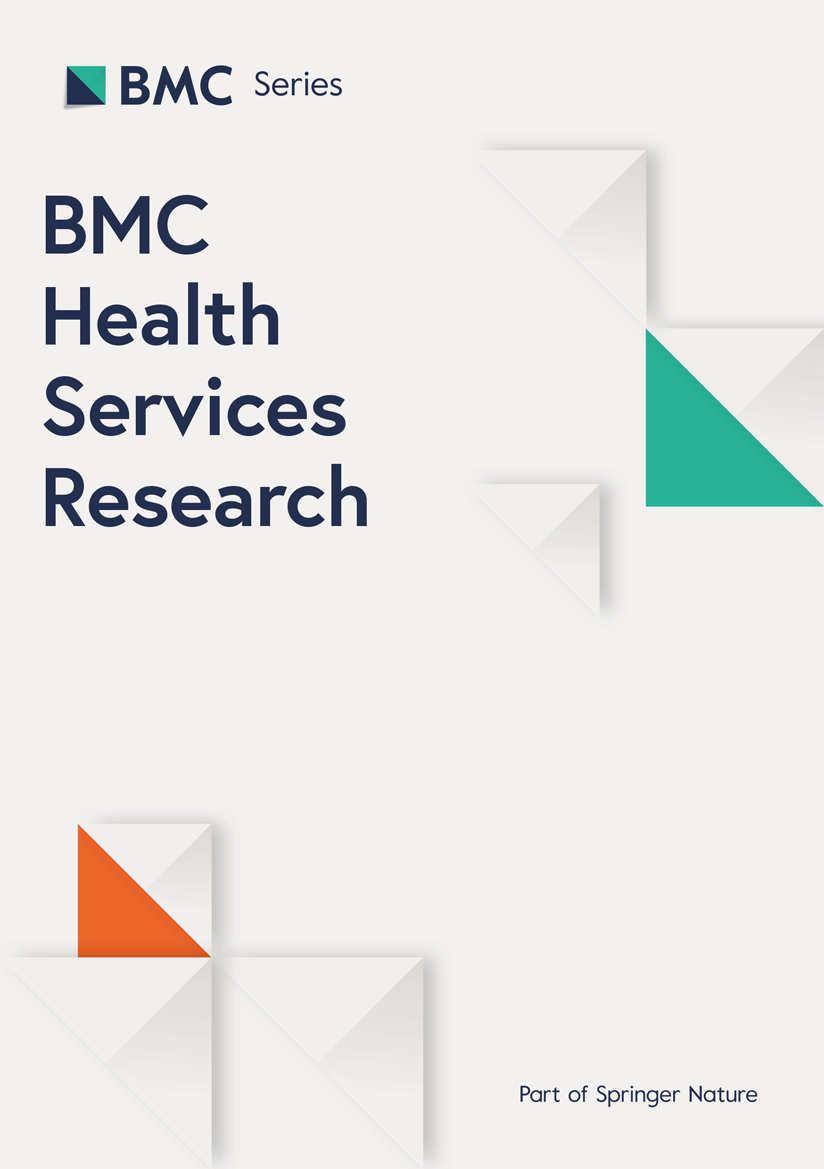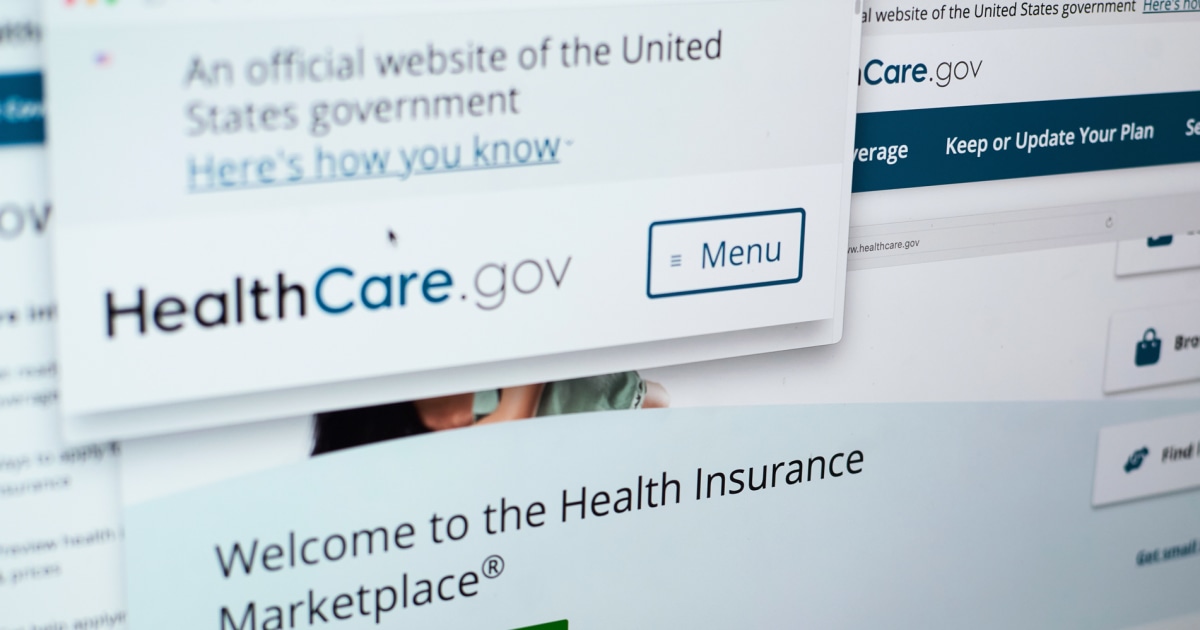
Five female and 3 male management staff and doctors were interviewed online (Table 2).
Applying thematic analysis, we generated one theme with one sub-theme for research question “making lean healthcare management Patient-centered”, one themes with three sub-themes for research question “the role of integrating medical humanities into lean healthcare management”, and two themes with four sub-themes for research question “Be wary of falling into the corporate profit model”, as illustrated in Table 2.
Making lean healthcare management patient-centered
Lean management is defined as an integrated socio-technical system that aims at waste elimination by simultaneously reducing variability among suppliers, customers, and internally [16]. Upon its adoption in healthcare, several elements were emphasized, notably the cultivation of a culture of continuous improvement, employee empowerment, and waste minimization, all with the primary goal of enhancing patient service value [17].
Lean healthcare management combines theories and practices from various fields, focusing on key principles such as waste elimination, enhancing the flow of patients, healthcare providers, and supplies, and ensuring that every process delivers value to the patients [18].
Lean healthcare management now encompasses strategies from health economics to for the management of medical spending and utilizes information technology to enhance service efficiency. It represents modern, sophisticated hospital management practices, aiming to transform medical institutions to enhance both efficiency and quality [19]. This transformation is manifested in the creation of standardized service systems and procedures, the cultivation of teamwork among medical staff, promoting continuous feedback for improvement, and establishing consistent protocols. Such measures optimize healthcare processes, boost efficiency, minimize waste—including medications, time, and resources—and reduce patient wait times. As all staff members contribute to these improvements, healthcare services become more streamlined and accessible, significantly improving service quality. Nonetheless, the essence of medicine’s humanistic values dictates that patient-centeredness should remain of utmost importance in lean healthcare implementation [20].
Adopting a patient-centric approach has become a key principle in lean healthcare management, ensuring a focus on patient needs and the delivery of anticipated healthcare services. This approach necessitates blending the “customer-centric” and “full participation” ideologies from total quality management theory to refine the humanized aspects of healthcare services [16]. By placing patients at the core and weaving humanistic values into its framework, lean healthcare management not only upholds the principles of prioritizing patient rights and compassionate care but also enhances management efficiency. This alignment maintains the foundational ethos of medicine as a benevolent art, ensuring a seamless transition from theoretical values to practical application.
“The goals of lean healthcare include optimizing the internal management processes of hospitals to make workflows smoother and more efficient; improving patient medical experience and enhancing the quality of doctor – patient communication; reducing the repetitive waste of medical resources and improving resource utilization efficiency; ensuring the quality and safety of healthcare services.” – P2.
“The purpose and social responsibility of lean healthcare can be summed up in two words: ‘value’. This essentially means enhancing the value of healthcare services themselves by improving their benefits and efficiency, thus creating greater value for patients.” – P1.
Patient-centered lean healthcare management effectively alleviates the issue of favoring technology over humanistic values in contemporary healthcare services. By integrating humanistic care into the systematic and structured processes of lean healthcare management, this approach conforms more closely with the core principles of healthcare. It takes advantage of the benefits of positive doctor-patient relationships, promoting treatment compliance and patient satisfaction. This is accomplished by addressing patients’ emotional and experiential needs, building trust, and thus enhancing the overall effectiveness of healthcare services [21].
“The social responsibility shouldered by the hospital is to provide better services to patients at the lowest overall cost through process improvement, efficiency and quality enhancement, and cost reduction. This includes meeting patients’ needs for physical disease treatment as well as their psychological needs, thus minimizing the burden on patients as much as possible. This reflects our hospital’s responsibility and commitment to patients and society.” – P8.
Consequently, formulating a lean healthcare management strategy that balances efficiency with humanistic values, with a patient-centric philosophy at its core, is crucial for the sustainable development of healthcare institutions.
The role of integrating medical humanities into lean healthcare management
Medical humanities prioritize the public aspect of healthcare, focusing on the individual needs of each patient to cultivate harmonious doctor-patient relationships and formulate personalized care plans, especially for vulnerable populations. This field emphasizes the healthcare needs of the socially disadvantaged, aiming to narrow healthcare access disparities caused by economic factors. Medical humanities promote for a humanistic view of medicine, treating patients as whole individuals rather than just subjects of biomedical treatment. It emphasizes the importance of equitable access to medical resources. Integrating medical humanities into lean healthcare management represents a patient-centered approach, conforming with modern healthcare’s value-driven expectations and enhancing the compassion and sustainability of lean healthcare practices.
To be beneficial for enhancing the personalization and comprehensiveness of healthcare services
Lean healthcare management centers on designing forward-looking, standardized, and streamlined patient care processes to enhance work efficiency and ensure the prompt delivery of services. This approach demands strict adherence to established procedures by both medical staff and patients to optimize resource allocation and cut down on waiting times. The core of lean healthcare lies in improving medical services by eradicating waste and enhancing process efficiency [22]. However, this reliance on standardized processes also restricts flexibility [23], rendering it challenging to adapt and adjust to individual needs once the processes are determined [24].
In contrast, medical humanities approaches healthcare from a different vantage point, stressing that medical services should center on patients’ overall well – being, encompassing physical health, psychological state, and social relationships. Medical humanities promotes more open and flexible medical processes that support personalized adjustments in line with each patient’s distinct needs. This approach encourages communication and understanding between medical staff and patients, enabling healthcare teams to offer more detailed and comprehensive care that goes beyond the treatment of physiological diseases to incorporate psychological support and cultural – sensitivity considerations.
Therefore, when lean healthcare management integrates elements of medical humanities, it can intensify the personalization and comprehensiveness of medical services. The merits of this integration encompass more adaptable service process design that can be modified according to patients’ specific requirements and conditions, as well as more all – encompassing patient care that takes psychological, social, and cultural aspects into account. By combining the efficiency of lean healthcare with the all – inclusive care concept of medical humanities, medical services can better fulfill patients’ individual needs while guaranteeing high efficiency, ultimately advancing their overall well – being and attaining higher – quality and more satisfactory healthcare experiences.
“A possible problem with lean healthcare is that it neglects patients’ medical experience. While it increases the value of healthcare by reducing waste, it doesn’t take into account patients’ broader experiential requirements. A patient’s medical experience has not only a biomedical aspect, but under the current biopsychosocial model of medicine, psychological and emotional needs should also be highlighted. Some steps that might seem worthless from a lean management point of view are actually crucial in a hospital context. Thus, when carrying out lean healthcare, we still need to make up for the lack of consideration of the medical experience and fully address patients’ physical and psychological needs to ensure comprehensive and humanized healthcare services.” – P1.
“Currently, some doctors in the hospital are deficient in providing humanistic care. They are unable to view patients as complete individuals and overlook patients’ psychological problems and emotional requirements. Consequently, some departments and individual doctors often receive patient complaints. Although these are not caused by diagnostic or treatment technical problems, the lack of effective communication and humanistic care has resulted in patient dissatisfaction with the service attitude.” – P8.
Cultivating trust in doctor-patient relationships through medical humanities
Lean healthcare management centers on efficiency, standardized processes, and cost control, with the aim of optimizing medical services by formulating unified diagnostic and treatment protocols and decreasing unnecessary duplication of labor and resource waste. In this model, interactions between medical staff and patients are frequently restricted to strictly adhering to standard procedures and treatment plans, occasionally neglecting the significance of patients’ emotional and individualized needs.
In contrast, medical humanities lays stress on humanization, compassion, and moral responsibility, underlining the importance of communication and emotional support between doctors and patients. It contends that doctors should deeply understand each patient’s unique needs and experiences, treating each life as unique and precious, thereby demonstrating profound humanistic care and respect in medical services. The practice of medical humanities serves to deepen understanding and trust between doctors and patients, building a solid doctor-patient relationship based on empathy and care [25, 26].
Therefore, the role of integrating elements of medical humanities into lean healthcare management is to promote the establishment of a deeper level of trust between doctors and patients. By combining the efficiency of lean management with the compassion and human care of medical humanities, medical services can not only preserve high efficiency and cost control but also better meet patients’ psychological and emotional needs. This deep understanding and empathy can boost trust between doctors and patients, providing patients with a safer, more understood, and respected treatment environment. In such an environment, patients are more inclined to actively follow treatment plans, thereby enhancing treatment outcomes. In conclusion, the integration of medical humanities not only enriches the essence of lean healthcare but also lays a solid basis for improving the quality of medical services based on trust.
“Some doctors can communicate adequately with patients, yet there are also some doctors whose doctor – patient communication is insufficient. We cannot claim that doctor – patient communication is always adequate, otherwise there would be no patient complaints. There are instances of insufficient communication, which is what gives rise to patient complaints.” – P6.
Enhancing healthcare team job satisfaction via medical humanities
Lean healthcare management stresses the maximization of effectiveness and efficiency, enhancing the quality and speed of medical services through process optimization and waste reduction. Although this approach has attained remarkable success in pursuing the efficiency and cost control of medical services, excessive emphasis on these aspects might result in increased work pressure on medical staff. Working in a high – pressure environment for a long time can not only worsen the doctor – patient relationship but also may undermine the intrinsic motivation and development vitality of the medical team, presenting challenges to the long – term stable operation of the system [27].
Medical humanities lays stress on the harmonious relationship between doctors and patients and the professional dedication of medical staff, regarding these as important cornerstones of medical service quality and healthcare team satisfaction. It promotes a people-oriented service concept which not only shows concern for patients but also attaches importance to the well-being and value realization of healthcare workers themselves. Under the guidance of medical humanities, medical work is not only the accomplishment of professional tasks but also a process of realizing personal values and experiencing a sense of professional achievement. This work environment is conducive to improving the job satisfaction of medical personnel, strengthening team collaboration and innovation capabilities, thereby sustaining the vitality and long-term development of the medical system.
Therefore, integrating elements of medical humanities into lean healthcare management can remarkably boost the professional satisfaction of the medical team. By balancing the pursuit of efficiency and humanistic care, it not only sustains and improves the quality of medical services but also constructs a healthier and more supportive working environment for healthcare workers. This environment stimulates medical personnel to fully exert their potential while guaranteeing their professional well – being and satisfaction. Lean healthcare management with the integration of humanistic factors, by enhancing doctor – patient harmony and the sense of professional achievement among medical staff, can not only elevate the quality of medical services but also intensify the endogenous motivation and long – term stability of the medical team, thus contributing to the sustainable and healthy development of the medical system.
“(Management) should also enhance job satisfaction for medical staff. Lean healthcare should not only focus on improving the patient experience but also enable medical staff to gain benefits from it by optimizing the work environment and processes. If the job satisfaction of medical staff rises, they will be more active in serving patients, resulting in a mutually reinforcing effect.” – P5.
“The endeavors to foster the spirit of medical humanities have indeed been effective. Nevertheless, from the present perspective, I’m unable to provide quantitative indicators. However, everyone can truly sense the change in the hospital’s culture of humanistic care. For instance, the staff fun sports meet organized by the hospital. Even though it took up weekend time, doctors and nurses participated actively and had a great time. I think this is helpful for relieving work stress.” – P4.
Integrating humanistic approaches in lean healthcare management
The integration of medical humanities within hospital management and operations has increasingly become essential for enhancing the quality of healthcare services and patient satisfaction [28]. This approach transcends mere technological and facility improvements, focusing on enriching the doctor-patient relationship, the service environment, and the quality of medical staff. The humanistic approach in lean medical management and its implementation can be illustrated through various dimensions.
Comprehensive assessment of patients and personalized treatment
At the core of this strategy is the establishment of a patient needs assessment mechanism. From a medical humanities perspective, hospitals should develop a systematic evaluation mechanism to assess the physiological, psychological, and social needs of patients at different stages of care [29], such as during outpatient and inpatient treatments. This enables doctors to gain a deeper understanding of patients’ health conditions and treatment requirements, leading to the development of more customized and effective treatment plans. For instance, in managing chronic diseases, consideration of the patient’s psychological wellbeing and social support networks is crucial for holistic care. Similarly, the care for elderly patients should extend beyond treating the illness to evaluating their self-care capabilities, family support systems, etc., aiming to preserve or enhance their life quality. This methodology requires that healthcare professionals not only have expert medical knowledge but also a profound grasp of medical humanities concepts, applying them effectively in clinical settings.
“During the assessment of needs for patients with chronic obstructive pulmonary disease (COPD), we found that patients hoped to minimize hospital visits, reduce the probability of disease recurrence, and maintain good control of their condition. After understanding the patients’ needs, we enabled patients to carry out pulmonary rehabilitation training at home through internet-connected devices and remotely monitored them, providing real-time guidance and assistance. We also proposed targeted measures to meet the patients’ needs.” – P2.
“Regarding the dishes served in the hospital cafeteria, we would discuss with them (the patients) to see if they had any suggestions. In terms of diet, we would make some improvements according to the patients’ needs.” – P3.
Strengthening doctor-patient communication and achieving emotional resonance
Effective communication between doctors and patients is crucial in the realm of medical humanities. Prioritizing and skillfully applying humanistic care in communication is vital for establishing a trust-based relationship between healthcare providers and patients. Doctors must not only possess professional medical expertise but also to possess strong communication skills and empathy. Engaging in meaningful conversations with patients, empathetically listening to their concerns, and understanding their genuine emotions are critical. Encouraging patients to express their anxieties and expectations, promptly answering their questions, and providing the necessary emotional support are key aspects of this interaction. Through such enhanced communication, doctors can gain a clearer understanding of patients’ actual conditions, alleviate their fears, develop treatment plans that are understandable and encourage active patient participation, and ultimately improve adherence to treatments and their effectiveness [30]. Thus, healthcare professionals need to have a blend of clinical expertise and humanistic skills, such as compassion and the ability to communicate effectively.
“(Regarding lean humanistic medical management), a major practice is to enhance doctors’ awareness and ability in doctor-patient communication, improve communication content, innovate communication methods, fully respect patients’ right to information and right to choose, promptly understand and pay attention to changes in patients’ psychological needs, and provide adequate health education and explanations of medical procedures. For patients requiring surgery or intensive monitoring, psychological counseling should be provided, measures should be taken to eliminate patients’ tension and fear, and their anxiety should be alleviated.” – P8.
Optimizing the medical environment and providing humanized services
The physical environment and operational methods of healthcare facilities play a crucial role in the application of medical humanities. It’s essential for medical institutions to improve their architectural layout, interior design, and service facilities to foster a welcoming, comfortable, and efficient medical environment. Creating an environment that feels warm and inviting, implementing patient-centered service processes, and ensuring comprehensive and empathetic communication can significantly reduce patients’ stress, offering them comfort similar to the feeling of “coming home” [31]. For instance, the design of patient rooms should prioritize privacy and comfort; waiting areas ought to provide cozy seating, soothing music, and clear directions, accompanied by amiable staff, all aimed at minimizing patient anxiety and inconvenience. Such initiatives require that hospital administration fully recognize the significance of medical humanities in elevating the standard of healthcare services and incorporates this understanding into the institution’s values and everyday operations.
“When patients were transferred from the general surgery department to the digestive department, we placed some content on the walls in the transition area. In addition to enhancing the aesthetic appeal of the environment, our aim was provide patients with an avenue to acquire medical knowledge and improve their overall medical experience…This not only eliminated waste in the workflow and increase efficiency of service, but also added value for patients to acquire medical knowledge, optimizing the overall medical experience.” – P1.
Cultivating humanistic qualities in healthcare professionals
Improving healthcare professionals’ humanistic qualities is essential for delivering high-quality medical services. Hospitals can boost their staff’s understanding of medical humanities and their ability to show empathy and compassionate care through targeted training and workshops [32]. Healthcare providers must consider patients’ psychological and social health alongside their physical health, providing comprehensive and considerate care. Such an approach not only elevates the quality of medical services but also builds patient trust and satisfaction with the facility. Consequently, healthcare institutions must implement effective talent development and assessment frameworks to guarantee that their professionals are fully capable of meeting patients’ comprehensive needs.
“The training effect of humanistic literacy mainly depends on the following three aspects: First, the trainees’ personal comprehension ability; second, the instructors’ teaching ability; and third, the trainees’ work environment. For example, we once invited the service team from Xiamen Airlines to provide etiquette training for our medical staff. Now our medical receptionists can receive patients in a more polite manner, and complaints have significantly decreased. Many patients have given feedback saying that our service level has greatly improved.“-P2.
Application of information technology in healthcare
Leveraging information technology significantly enhances the quality of medical services. In contemporary medical management, its role is becoming indispensable. Hospitals can implement patient relationship management systems to optimize patient information management and boost operational efficiency [33]. Through patient satisfaction surveys, healthcare facilities can quickly identify and address service shortcomings, thereby improving overall quality. Furthermore, integrating cutting-edge technologies such as Virtual Reality (VR) can improve doctor-patient interactions, offering patients a more engaging treatment experience. The adoption of these technologies not only enhances service efficiency but also humanizes care, meeting the expectations of modern healthcare.
“Information technology has become a key technical support for optimizing medical processes.” -P7.
“After the informatization construction, those processes that originally required queuing have been simplified or even made self – service. Patients can complete registration, payment and other operations through mobile apps. This has not only greatly reduced the patients’ time and physical exertion and enabled lean management of processes, but also significantly improved the medical experience without requiring patients to queue laboriously.” – P1.
“The reform of hospital information systems has played an important role in streamlining medical processes and improving service efficiency, bringing great convenience to patients.” -P8.
Lean medical management should be wary of falling into a corporate profit paradigm
Lean management in healthcare is essentially focused on enhancing work efficiency, reducing medical expenses, and conserving public health resources. It aims at high production efficiency and minimal medical costs. However, when hospitals adopt lean healthcare management mainly focusing on profits and efficiency, there is a risk of falling into a corporate profit model due to a narrow interpretation of lean principles.
“Lean healthcare focuses on eliminating steps in medical processes that do not generate value, but does not adequately consider how to increase the value of medical services during process optimization.” – P1.
Such a narrowed focus on healthcare economics can lead to dehumanizing consequences, such as the instrumentalization of life, oversimplified approaches to medication, and weakened doctor-patient relationships. Implementing lean healthcare management with an exclusive eye on economic gains encourages a shortsighted focus on cost efficiency. This approach often prioritizes standardized diagnostic and treatment procedures and meticulous medical record-keeping over personalized care, aiming for the efficient utilization of resources across the board. Additionally, this profit-driven mindset risks sidelining the needs of vulnerable populations, leading to inequitable access to medical resources and sidelining the foundational values of lean healthcare. Research indicates that lean organizations has yet to make significant progress in understanding customer value [34], frequently concentrating on process standardization to conform to best practices [35, 36], which misses the broader goal of lean healthcare: to enhance the value healthcare institutions offer to patients and society.
“The core concept of lean healthcare is to eliminate waste and enhance medical value. It emphasizes the idea of continuous optimization and improvement. From the hospital’s perspective, the purpose of continuous improvement is to increase medical efficiency and benefits as well as the value of medical services. From society’s perspective, the ultimate goal of continuous improvement is to augment the health value of patients. By optimizing internal hospital management and thereby enhancing the service value of healthcare institutions for patients and society – this is where the core value of lean healthcare lies.” – P1.
The key to ensuring that lean healthcare management remains patient-centered lies in implementing the patient-centered philosophy at the institutional and cultural levels.
Implement a scientific evaluation and incentive mechanism
The performance evaluation of hospital executives should give priority to the quality of medical services and patient health outcomes rather than focus solely on purely economic metrics. This shift is crucial for alleviating the risks of excessive commercialization.
“The treatment safety and efficacy for patients must be guaranteed. Only on this premise can management thinking be applied to reduce costs. This humanistic caring mindset is integrated into the work process of all our staff. The hospital has also established a comprehensive management system, which is iteratively updated every year, to strengthen the supervision and management of medical processes. All of these will improve the quality and safety of medical services.” – P3.
To counteract potential over-commercialization, it’s imperative for hospitals to create an autonomous medical quality monitoring department. This unit, with patient representatives involved in its oversight activities, should possess the authority to investigate and assess medical disputes and incidents. The significance of quality assessment and patient satisfaction metrics should be equal to that of economic indicators [37]. Engaging external stakeholders in monitoring medical quality and the doctor-patient dynamic helps to moderate the economic motivations within the hospital. This approach prevents lean healthcare management from degenerating into a mere operational tool, allowing it to fulfill its intended purpose as a scientific and rational methodology. Establishing such mechanisms serves as an effective strategy for harmonizing the principles of humanistic medicine with the imperatives of economic efficiency, ensuring that lean healthcare management enhances service value for both patients and society.
“One method for standardizing medical conduct is to conduct training. The hospital trains its medical staff by organizing professional – knowledge training and humanistic – quality training. On the other hand, the hospital also monitors the training effectiveness and work quality of its medical staff through the Quality Assessment Department and evaluation system, thereby standardizing and controlling medical conduct.” – P2.
Enhancing transparency and oversight in healthcare
To strengthen the integrity of healthcare services, increasing transparency in medical quality and safety is essential, with an openness to societal oversight. This involves refining medical service pricing and reimbursement processes to prevent medically unnecessary practices motivated by financial incentives. Encouraging patient access to their medical records and detailed billing fosters an environment of trust and accountability, aiding in the prevention of superfluous testing and procedures driven by profit motives [38].
“These measures are systems and constraints jointly developed by the government and medical institutions and aim to standardize medical practices.” -p7.
Moreover, it is crucial to strengthen supervision over the design of medical service workflows and establish spot – check systems to ensure that physicians not only adhere to standardized treatment protocols but also meet the individual needs and overall well – being of their patients, including providing humanized services such as psychological support. By regulating medical practices without sacrificing humanistic care, the conceptual and practical gap between lean management and humanistic medicine can be narrowed. This approach promotes the seamless integration of efficiency and compassionate care, raising the standard of healthcare while maintaining the integrity of doctor – patient relationships, thus contributing to the progressive development of the medical field towards a mutually beneficial outcome for all stakeholders.
“The outpatient department reform of the digestive system is part of the patient – based medical process reform. Originally, the outpatient department was set up according to medical specialty systems divided by floors, such as the internal medicine system, the surgical system, etc., on different floors. After the reform, a disease – centered model was adopted. According to patients’ medical needs, relevant resources are integrated to achieve a unified and convenient medical process with patients at the core.” -p2.
Cultivating a patient-centric medical culture
Creating a medical culture that prioritizes patient rights and interests is paramount, with a focus on fostering empathy between doctors and patients and promoting shared decision-making, rather than maintaining a hierarchical dynamic. Actively participating in humanistic medicine training to enhance the humanistic qualities of medical staff is crucial for cultivating their genuine desire to care for patients [32]. Achieving a balance between operational efficiency and compassionate care necessitates the establishment of a patient-centered medical culture. Through such training, medical professionals can enhance their capacity for empathy and motivation to prioritize patient care. This approach not only conforms to the principles of humanistic medicine regarding doctor-patient interactions but also alleviates the potential adverse effects of a pronounced hierarchical relationship that can emerge in lean management practices within healthcare settings [21].
By advocating for a culture that values doctor-patient empathy and mutual decision-making, healthcare providers can ensure both the efficiency of medical services and the provision of personalized, humanized care for each patient, harmonizing the “fast” and “slow” aspects of healthcare delivery.
“The practice of evaluating professional ethics and conduct constantly reminds us to adhere to a patient-centered approach in medical practice and to continuously improve our personal medical ethics.” -p3.
“(For medical culture) Another aspect is to exhibit good professional conduct and uphold patient satisfaction as the highest standard. We should learn from exemplary models, abide by occupational discipline and ethics, and continuously improve our service attitude.” -p8.
In conclusion, integrating medical humanities into lean healthcare management enhances not only the efficiency and quality of medical services but also ensures a more comprehensive and humanized approach to patient care. The synergistic relationship between lean healthcare management and medical humanities is instrumental in offering efficient, high-quality, and compassionate healthcare services. This approach not only better serves patients but also generates added value for the healthcare sector, contributing to the sustainable advancement of healthcare institutions.
link






